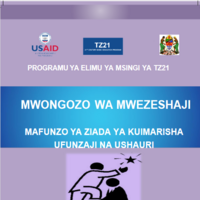Search
Books+
Searching 1,73 books
Search related to the career Athletic Trainer
Main Goals of an Athletic Trainer:
1. Injury Prevention: Athletic trainers aim to prevent injuries by implementing appropriate training techniques, warm-up routines, and conditioning programs. They educate athletes on proper form, technique, and equipment usage to minimize the risk of injuries.
2. Immediate Care: Athletic trainers provide immediate care to athletes who sustain injuries during practices or competitions. They assess the injury, provide first aid, and make decisions regarding the athlete's ability to continue participating or the need for further medical attention.
3. Rehabilitation: Athletic trainers develop and implement rehabilitation programs for injured athletes to promote recovery and facilitate their safe return to sports. They utilize various therapeutic techniques, exercises, and modalities to improve strength, flexibility, and function.
4. Injury Evaluation and Diagnosis: Athletic trainers evaluate and diagnose athletic injuries, including sprains, strains, fractures, and concussions. They assess the severity of the injury, refer athletes to appropriate medical professionals when necessary, and collaborate with healthcare providers for comprehensive care.
5. Education and Counseling: Athletic trainers educate athletes, coaches, and parents about injury prevention, proper nutrition, hydration, and other health-related topics. They provide guidance on injury management, rehabilitation protocols, and safe training practices to promote overall wellness.
6. Emergency Preparedness: Athletic trainers are trained to handle emergency situations effectively. They develop emergency action plans, conduct drills, and ensure that necessary medical supplies and equipment are readily available to provide prompt and appropriate care during critical incidents.
7. Performance Enhancement: Athletic trainers work with athletes to enhance their performance through strength and conditioning programs, flexibility training, and injury prevention strategies. They collaborate with coaches and other sports professionals to optimize athletes' physical abilities.
8. Research and Professional Development: Athletic trainers engage in ongoing research to stay updated with the latest advancements in sports medicine and injury management. They participate in professional development activities, attend conferences, and maintain certifications to provide evidence-based care.
9. Advocacy and Ethical Practice: Athletic trainers advocate for the health and safety of athletes, ensuring they receive appropriate medical care and follow ethical guidelines. They promote fair play, sportsmanship, and adherence to rules and regulations within the athletic community.
10. Collaboration: Athletic trainers collaborate with healthcare professionals, coaches, and other members of the sports medicine team to provide comprehensive care for athletes. They communicate effectively, share information, and work together to optimize athletes' health and performance.
Source: Various AI tools
























































